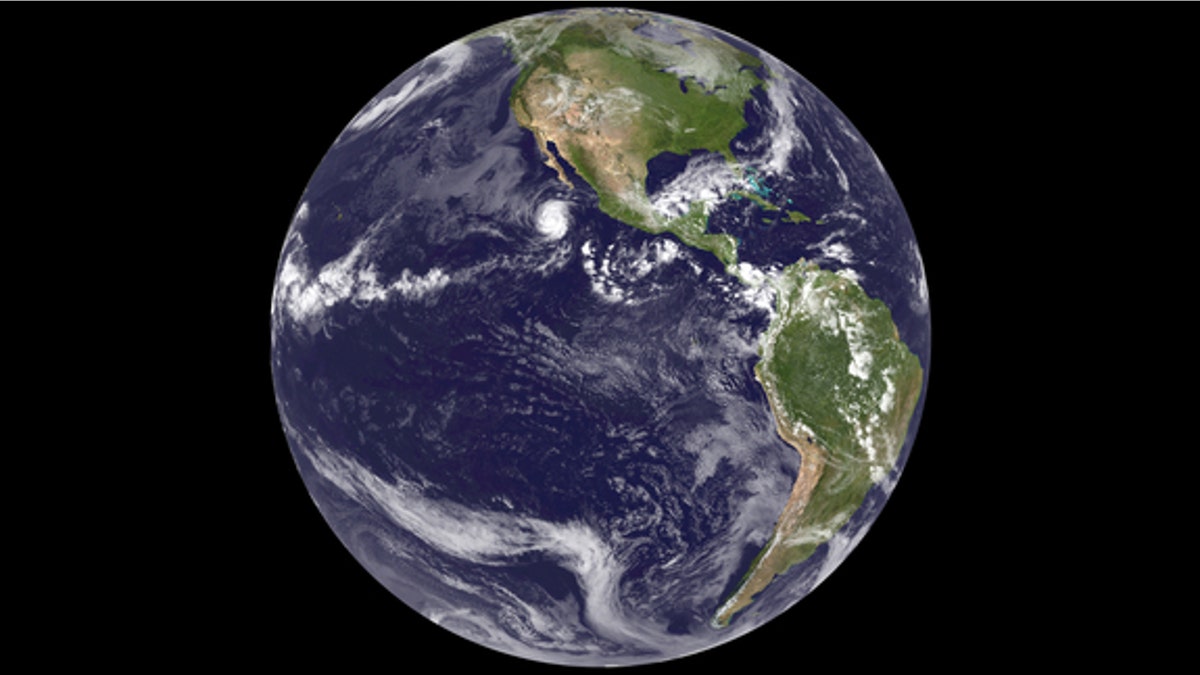
This image of Earth from space was acquired from the GOES-14 satellite on September 24, 2012 at 1745z, the first image from GOES-14 while acting as GOES East, the replacement of GOES-13. (NOAA)
It may surprise many people to realize that there is a remarkable bond of mutual respect between the military leaders of many countries. Occasionally this relationship goes beyond respect and develops into genuine friendship; a friendship which, in turn, extends to close families.
We – the recent professional heads of the armed forces of the U.S., the United Kingdom and France – are fortunate enough to enjoy such a relationship.
In part, our friendship derives from the fact that in recent times we often shared, with each other, the otherwise lonely burden of our national responsibilities. In particular, those responsibilities that involved the custodianship each of our nation’s military capabilities and our professional duty to advise our governments on the threats we faced and the risks we ran.
The three of us met recently in the inspiring surroundings of the Tower of London and, although now relieved of those responsibilities, we all knew that our professional concerns endured and were, if anything, deepening. We thought we might share three of those concerns more widely.
The first concern is the need to recognize that the world has, quite suddenly, become a less certain, less stable and more dangerous place. The symptoms of this are easy to see: terrorism, mass migration, revanchist states.
The best way to enhance military capability is through alliances built on trust. And the worst way to solve global challenges is to militarize them.
The causes, however, are not so straightforward to recognize, partly because they lay in societal fault lines among and within countries. Simply put, mankind continues to generate a massive maldistribution of wealth and opportunity across the world and, at the same time, tries to sustain a world order in which many nations believe that history entitles them to particular advantages.
For too many people, the world is not a fair place in which to live, and the proliferation of globally connected social media feeds that awareness.
The second concern adds to the danger of the first. There appears to be a continuous decline in the effectiveness of international institutions. This creates an absence of empowered mechanisms by which to resolve these global problems; a lack of appreciation that it is only through collective action that, in a dynamic and changing world, stability can be sustained while beneficial change is accommodated.
And our third concern completes the piece. A lack of commitment to collective and collaborative leadership means that there is an absence of any truly effective international will to resolve these global challenges. International leaders look increasingly inward, their focus firmly on domestic popularity. Yet the nature of power is changing, and the desire to remain “in control” is producing sub-optimal, expensive, temporary solutions to our problems.
Although we’re sure our successors would appreciate a bit more support and predictability in the budgeting process within each of our countries, none of what is written above is an appeal for defense spending or military solutions. Indeed, the best way to enhance military capability is through alliances built on trust. And the worst way to solve global challenges is to militarize them.
All we wish to emphasize is the very grave risk that now exists to global security unless the dangers are recognized, leadership steps forward with an instinct to be inclusive, and collective solutions are identified.
Pierre de Viellers was the Chief of the general staff headquarters of the French Armies from 2014-2017. General John Nicholas Reynolds Houghton was Chief of the Defense Staff of the British Armed Forces from 2013-2016.
